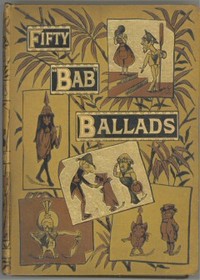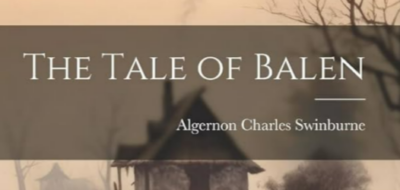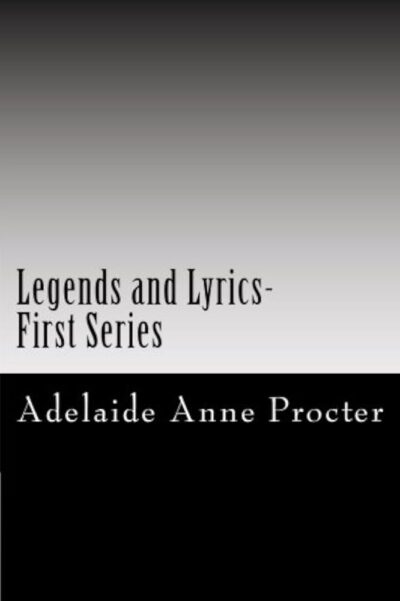208 Results in the "Poetry" category
Biography & Memoir (434)
Books Like (8)
Business & Finance (26)
Children’s Fiction (203)
Dystopian (16)
Education & Learning (9)
Fantasy (1214)
fashion (1)
Fiction (4477)
Health & Wellness (21)
Historical Fiction (504)
Horror (159)
Literary Fiction (788)
Non-Fiction (1094)
Novel (229)
Others (106)
Philosophy (128)
Politics & History (131)
Posts (65)
Psychology (46)
Religion & Spirituality (1)
Romance Novel (535)
Science & Technology (82)
Science Fiction (220)
Self-Help & Personal Development (99)
Thriller / Mystery (858)
Travel & Adventure (2)
True Crime (55)
view (96)
Young Adult (284)
-
Chapter
When Mother Sleeps
 The poem "When Mother Sleeps" delicately navigates the profound vigilance and unconditional love of a mother, juxtaposing her deep slumbers with the acute awareness she has for her baby's needs. Despite the intrusion of loud noises or the chaos of the world outside, a mother’s sleep remains undisturbed, symbolizing the depth of her exhaustion and the peace she finds in rare moments of rest. However, the narrative quickly shifts to emphasize the instant, almost magical awakening that occurs at her…
The poem "When Mother Sleeps" delicately navigates the profound vigilance and unconditional love of a mother, juxtaposing her deep slumbers with the acute awareness she has for her baby's needs. Despite the intrusion of loud noises or the chaos of the world outside, a mother’s sleep remains undisturbed, symbolizing the depth of her exhaustion and the peace she finds in rare moments of rest. However, the narrative quickly shifts to emphasize the instant, almost magical awakening that occurs at her…-
57.4 K • Ongoing
-
-
Chapter
Ballad: The Troubadour
 In the ballad "The Troubadour" from *The Bab Ballads*, a narrative unfolds outside a castle, where a dedicated troubadour plays his music. Within the castle's dismal dungeon, a maiden, trapped and despairing, hears his songs and responds, her heart heavy with sorrow. Despite not knowing her face or name, the troubadour vows not to rest until she is freed, motivated simply by her sad plight. Encouraged by his resolve, the maiden halts her tears and wails, singing gratefully in response to his…
In the ballad "The Troubadour" from *The Bab Ballads*, a narrative unfolds outside a castle, where a dedicated troubadour plays his music. Within the castle's dismal dungeon, a maiden, trapped and despairing, hears his songs and responds, her heart heavy with sorrow. Despite not knowing her face or name, the troubadour vows not to rest until she is freed, motivated simply by her sad plight. Encouraged by his resolve, the maiden halts her tears and wails, singing gratefully in response to his…-
67.2 K • Ongoing
-
-
Chapter
The Boston Athenaeum
 The Boston Athenaeum, a well-beloved sanctuary for those seeking solace and inspiration among books, stands as a testament to the profound connection between a reader and the world of literature. Within its walls, one finds themselves ascending a narrow spiral staircase to a secluded gallery far removed from the bustling corridors frequented by casual readers. Here, in a quiet nook brimming with volumes, peace and introspection reign. Surrounded by books placed just out of casual reach or nestled in…
The Boston Athenaeum, a well-beloved sanctuary for those seeking solace and inspiration among books, stands as a testament to the profound connection between a reader and the world of literature. Within its walls, one finds themselves ascending a narrow spiral staircase to a secluded gallery far removed from the bustling corridors frequented by casual readers. Here, in a quiet nook brimming with volumes, peace and introspection reign. Surrounded by books placed just out of casual reach or nestled in…-
7.4 K • Ongoing
-
-
Story
The Tale of Balen
 The Tale of Balen by Algernon Charles Swinburne is a poetic retelling of the tragic Arthurian legend of Sir Balin, a knight whose life is marked by loyalty, courage, and a fateful destiny. First published in 1896, the poem follows Sir Balin’s quest for honor and his encounters with themes of fate, vengeance, and the consequences of his actions. Swinburne’s vivid, lyrical verse captures the medieval atmosphere of King Arthur’s court while delving into the hero’s inner conflict and moral struggles. This work highlights Swinburne’s fascination with chivalric ideals and the tragic beauty of knightly legends, bringing to life one of the darker tales from Arthurian mythology.
The Tale of Balen by Algernon Charles Swinburne is a poetic retelling of the tragic Arthurian legend of Sir Balin, a knight whose life is marked by loyalty, courage, and a fateful destiny. First published in 1896, the poem follows Sir Balin’s quest for honor and his encounters with themes of fate, vengeance, and the consequences of his actions. Swinburne’s vivid, lyrical verse captures the medieval atmosphere of King Arthur’s court while delving into the hero’s inner conflict and moral struggles. This work highlights Swinburne’s fascination with chivalric ideals and the tragic beauty of knightly legends, bringing to life one of the darker tales from Arthurian mythology.-
4.5 K • Nov 8, '24
-
4.6 K • Nov 8, '24
-
4.5 K • Nov 8, '24
-
-
Chapter
Chapter Ten
 The chapter depicts the narrator's life working at an industrial chicken breeder farm in Fort Wayne, where the chickens are genetically modified for rapid growth and efficiency, stripped of immune systems to maximize productivity. The narrator describes the sterile, laboratory-like environment, contrasting it with traditional farming imagery. Their daily routine involves meticulous biosecurity measures, including showering and wearing scrubs to prevent contamination. The chickens, referred to as…
The chapter depicts the narrator's life working at an industrial chicken breeder farm in Fort Wayne, where the chickens are genetically modified for rapid growth and efficiency, stripped of immune systems to maximize productivity. The narrator describes the sterile, laboratory-like environment, contrasting it with traditional farming imagery. Their daily routine involves meticulous biosecurity measures, including showering and wearing scrubs to prevent contamination. The chickens, referred to as…-
74.6 K • Ongoing
-
-
Chapter
BOOK I
 Straightway they rushed in throngs from the city gates, eagerly seeking; for no one, neither youth nor elder, tarried behind. They searched, turning every stone, each one eager to be the first to bring back to Heracles tidings of his lovely Hylas. There is a fountain, Artacia, the water of which the Mysians say gushes up from the rock not far from the city, and thither, as fate would have it, the searchers came likewise. And Heracles eagerly asked them if haply they had seen a boy passing to the spring…
Straightway they rushed in throngs from the city gates, eagerly seeking; for no one, neither youth nor elder, tarried behind. They searched, turning every stone, each one eager to be the first to bring back to Heracles tidings of his lovely Hylas. There is a fountain, Artacia, the water of which the Mysians say gushes up from the rock not far from the city, and thither, as fate would have it, the searchers came likewise. And Heracles eagerly asked them if haply they had seen a boy passing to the spring…-
6.9 K • Ongoing
-
-
Chapter
The Job
 The chapter eloquently delves into the profound understanding that one's occupation or job does not define their worth or their trajectory to success, fame, or joy. It emphasizes the intrinsic value and responsibility of an individual in their professional realm, arguing that the ultimate outcome of their labor is contingent upon their own efforts, ethics, and determination rather than the nature of the job itself. Portrayed through a reflective and didactic tone, the narrative implores readers to perceive…
The chapter eloquently delves into the profound understanding that one's occupation or job does not define their worth or their trajectory to success, fame, or joy. It emphasizes the intrinsic value and responsibility of an individual in their professional realm, arguing that the ultimate outcome of their labor is contingent upon their own efforts, ethics, and determination rather than the nature of the job itself. Portrayed through a reflective and didactic tone, the narrative implores readers to perceive…-
57.4 K • Ongoing
-
-
Chapter
VERSE: A TOMB IN GHENT
 "A Tomb in Ghent" offers a narrative that weaves together music, passion, and the evocative setting of Ghent through the life course of an English family transplanted by economic necessity. The tale begins with a portrait of a young maiden, characterized by her English heritage, quick step, and a predilection for singing ancient chants and complex melodies that betray a deep connection to a musical past—tones evoking Palestrina and Scarlatti. This singing habit becomes a narrative thread that draws us…
"A Tomb in Ghent" offers a narrative that weaves together music, passion, and the evocative setting of Ghent through the life course of an English family transplanted by economic necessity. The tale begins with a portrait of a young maiden, characterized by her English heritage, quick step, and a predilection for singing ancient chants and complex melodies that betray a deep connection to a musical past—tones evoking Palestrina and Scarlatti. This singing habit becomes a narrative thread that draws us…-
49.7 K • Ongoing
-
-
Chapter
Ballad: The Reverend Micah Sowls
 In "The Bab Ballads," the ballad titled "The Reverend Micah Sowls" presents a comedic and critical look at the hypocrisy often associated with moralizing figures of authority, specifically targeting the clergy. The poem begins with an energetic and almost aggressive description of the Reverend Micah Sowls, a clergyman who passionately condemns the stage (theatre) as a domain of evil and immorality, urging his congregation to avoid it at all costs. His fervor is heightened by the presence of his bishop in…
In "The Bab Ballads," the ballad titled "The Reverend Micah Sowls" presents a comedic and critical look at the hypocrisy often associated with moralizing figures of authority, specifically targeting the clergy. The poem begins with an energetic and almost aggressive description of the Reverend Micah Sowls, a clergyman who passionately condemns the stage (theatre) as a domain of evil and immorality, urging his congregation to avoid it at all costs. His fervor is heightened by the presence of his bishop in…-
67.2 K • Ongoing
-
-
Chapter
Nimmo
 In "Nimmo," the narrator reflects on the complex and seemingly absurd stories surrounding a man named Nimmo, whom the audience is presumed to have known. The poet begins by criticizing the fanciful tales that have been spun about Nimmo, suggesting that the truth has been lost amidst these embellishments. Despite leading the audience into these stories, the narrator expresses regret, indicating a deeper, more poignant connection to Nimmo's legacy. Nimmo is remembered for his remarkable eyes, which were…
In "Nimmo," the narrator reflects on the complex and seemingly absurd stories surrounding a man named Nimmo, whom the audience is presumed to have known. The poet begins by criticizing the fanciful tales that have been spun about Nimmo, suggesting that the truth has been lost amidst these embellishments. Despite leading the audience into these stories, the narrator expresses regret, indicating a deeper, more poignant connection to Nimmo's legacy. Nimmo is remembered for his remarkable eyes, which were…-
29.4 K • Ongoing
-
- Previous 1 … 15 16 17 … 21 Next
